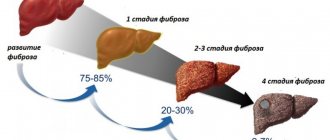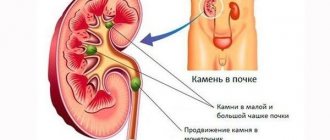By inna2041 Jul 11, 2017
702
|
0
When considering hormonal imbalance in women, symptoms and signs of its presence, you should understand what such an imbalance is and what consequences it will lead to if you do not pay attention to it.
Many women don’t even think about the fact that a lack or excess of one or another hormone in the body can lead to trouble, but in vain. After all, such a situation is fraught with the occurrence of diseases, impaired health and emotional state, obesity, premature aging, and so on.
What is hormonal imbalance in women?
Hormonal imbalance is the insufficient or excessive production of certain hormones responsible for the proper functioning of a woman’s organs and systems. If the amount of hormones does not fit within certain limits, pathological processes begin to develop in the body, which in the future will lead to the development of very serious diseases.
There is a popular belief that hormone imbalance can only occur in a woman’s body. However, it is not. Doctors observe hormonal imbalance in women and men, and even in children. Regardless of gender, the pathology leads to disorders in the central nervous system, excess weight and decreased libido. If treatment is not started in time, the result may be the development of malignant and benign tumors.
Symptoms of hormone imbalance during pregnancy
A woman should tell her obstetrician-gynecologist about any ailments that she experiences. Especially if you have had miscarriages before.
Hormone imbalances are often accompanied by a range of symptoms.
A pregnant woman may experience seizures that are not caused by external signs (fear, excitement, joy, stress, etc.).
Sudden and severe mood swings, aggression, irritation to noise, skin rashes are also signs of imbalance.
If dizziness, nausea, insomnia and a feeling of constant lack of sleep do not leave a woman in the second trimester, then it is necessary to consult a doctor.
The main symptoms of hormonal imbalance in women
Here are the main symptoms of hormonal imbalance in women:
- Mood swings, increased aggressiveness, nervousness, irritability.
- Increase in body fat mass even with proper nutrition.
- Sleep disturbances and fatigue.
- Violations of the monthly cycle.
- Headaches, constipation, hair loss.
- The appearance of acne on the skin, decreased libido.
- Brittle hair and nails.
These are the main signs of hormone imbalance, but there are others.
PMS or pregnancy? What are the similarities and differences?
It is very easy to confuse pregnancy with premenstrual syndrome. This is especially true for the first pregnancy.
Girls who are sexually active should monitor their menstrual cycle, paying attention to delays. But we must not forget that the latter can be associated not only with conception, but also with ovarian dysfunction.
To prevent an interesting situation from becoming a big discovery for you 2 months after conception, you need to listen to your body.
What is premenstrual syndrome or PMS?
This is a cyclical syndrome. Experts call it cyclic tension syndrome . According to statistics, PMS bothers 50% of women of childbearing age.
Most crimes are committed by women who are under the influence of PMS. It is during this period that representatives of the fair sex become the culprits of road accidents. Female university students receive the lowest grades
Most often, premenstrual syndrome occurs in women who have poor health. Reduced immunity, chronic diseases, poor lifestyle - women with such symptoms usually experience premenstrual syndrome. who constantly experience great mental stress are also susceptible to PMS
What are the causes of PMS?
This syndrome can be caused by various gynecological diseases, operations or unsuccessful contraception. All these reasons cause hormonal imbalance in the body.
A woman's progesterone levels decrease, which leads to PMS. That is, experts consider the main reason to be an imbalance between progesterone and estrogen.
What causes the imbalance ? Doctors do not give an exact answer to this question. The reason may be
Source
You should know that endocrine dysfunctions and diseases are difficult to treat, but their timely detection can greatly facilitate this process. What are the main signs of hormonal disorders, and what may accompany them?
Unstable menstrual cycle. The main symptom of hormonal imbalance in women is the disruption of the menstrual cycle. Menstruation may be irregular, last too long, or, conversely, be short-lived. The nature of menstrual flow may also not correspond to the norm - it may be too heavy or scanty. There are cases when menstruation is completely absent for several months. This effect is often found in girls and women who follow a strict diet and suffer from anorexia nervosa.
Disorders of the central nervous system. This sign of hormonal imbalance manifests itself, first of all, in severe nervousness, a tendency to melancholy and depression for no apparent reason, an unstable mental state, sudden and frequent mood swings, and a constant pessimistic mood. Uncontrollable attacks of aggression, unusual for a woman up to this point, may occur. Hormonal imbalance is characterized by a painful reaction to things that previously did not cause stress and moral decline. An exacerbation of premenstrual syndrome is characteristic, especially its painful and nervous course.
A sharp increase in body weight. Hormonal imbalances can manifest themselves in a sudden gain of excess weight, while body weight cannot be controlled and corrected. A woman cannot eliminate fat deposits through exercise and following a strict diet. There are cases where weight did not fall even after prolonged fasting. This symptom does not depend on how the woman eats and what foods are included in her diet.
Source
Why might hormonal imbalance occur?
There are many factors that can contribute to hormonal imbalance in women. This is due to the fact that hormonal status depends on the neuroendocrine regulation of the central nervous system, which occurs in the brain, and on the proper functioning of the endocrine glands located in the periphery. When considering hormonal imbalance in women, symptoms and signs, you should first think about the reasons for its occurrence.
The causes of hormonal imbalance can be classified into two main groups:
- Those that are caused by a disruption in the functioning of central regulation.
- Those that are associated with malfunction of the peripheral glands (infections, tumors, inflammatory processes, etc.).
Let's look at these reasons in more detail.
The hypothalamic-pituitary system (neuroendocrine regulation system) may begin to malfunction in the presence of a lesion of organic origin. Namely, in case of severe injury to the brain and skull, encephalitis, and cancer. In addition, failure can cause exhaustion of the body and chronic fatigue.
Human hormonal levels are influenced by the thyroid gland and the adrenal cortex. It should also be taken into account that hormonal metabolism occurs in the liver, and metabolites are excreted by the kidneys. So disturbances in the functioning of these organs can also lead to hormonal imbalance. In addition, the hereditary factor should not be overlooked. It can also provoke the development of hormonal imbalance, especially those changes that are inherent in the menopause period and the period following it.
There are also congenital pathologies of the systems responsible for the production of hormones, which cause hormonal disorders. The first manifestation of such a pathology is the absence of puberty or its delay.
Most often, hormonal imbalance in women occurs during periods of physiological changes. These stages include: puberty and its decline, childbirth and abortion.
Pregnancy with hormonal imbalance
Hormonal disorders in women occur quite often in the practice of an obstetrician-gynecologist. Hormonal imbalance in women primarily affects the course of pregnancy. It also affects the well-being of the expectant mother. It is a change in the concentration of hormones in the blood that can cause changes in the functioning of organs.
During pregnancy, hormonal imbalance in women is especially noticeable, the symptoms of which appear from the first days. This happens naturally and this is how the most favorable atmosphere is created for the development of the fetus in the womb.
Symptoms of hormonal disorders in women.
The increased frequency of hormone releases into the blood can cause some consequences, which can sometimes have an extremely negative impact on the life activity of both the expectant mother and her child. Hormonal imbalance in women, the symptoms of which were ignored or medical attention was not provided on time, can lead to:
- Discharge due to hormonal disorders. Light brown or bloody discharge, which may be accompanied by discomfort and bloating
- Untimely and from a medical point of view abnormal development of the fetus, slow growth or deviations from the norm in the development of the nervous system
- Premature birth, as a rule, this threat occurs only in the case of an increased level of hormones in the blood
- Early miscarriages (6-12 weeks)
It is important to know the causes of hormonal disorders. That is why doctors carefully examine the pregnant woman throughout the entire period of pregnancy and diagnose what hormonal disorders, the symptoms of which are not even visible externally, are present in the woman and how to deal with it.
For a comprehensive assessment of the body’s condition, the gynecologist prescribes hormone tests and ultrasound examinations. Thanks to modern techniques, treatment of hormonal disorders is carried out without harm to the fetus and does not in any way affect the mother’s life activity or the concentration of her attention.
It is necessary to take a blood test to identify abnormalities in the functioning of hormones once every 2-3 months. Experts can recommend undergoing examination more often only if the woman herself talks about the symptoms of hormonal imbalance, and they are also noted by the gynecologist during the next examination.
Therefore, a pregnant woman should remember that informing the doctor about any changes in her health is one of the most important points for timely prevention of possible consequences.
Treatment of hormonal imbalances in women.
Treatment of hormonal disorders in women is mandatory if this fact is confirmed. This is based on the subjective indicators of the pregnant woman regarding her well-being, as well as objective ones, thanks to a number of studies.
It is appropriate to seek help from specialists if a woman is concerned about the following signs of hormonal imbalance:
- Frequent and strong heartbeat, which is in no way related to objective factors: fear, strong emotional experience, stuffiness and lack of air, or walking up stairs
- Sudden changes in mood, increased aggressiveness, intolerance towards others, extremely strong reaction to any extraneous rustles, knocks or screams
- Nausea, which is not associated with toxicosis and is observed already in the second or third trimester of pregnancy, is often accompanied by dizziness
- The appearance of any spots on the skin or rash that is not associated with a reaction to an allergen and is not a form of seasonal adaptation of the body to changing weather conditions
- Failure of the rest regime, often due to changes in hormonal levels, the pregnant woman suffers from lack of sleep, and there are also problems falling asleep
- Increased fetal activity that does not cause pain to the woman, but it can begin as abruptly as it stops, regardless of the time of day
You should also be extremely attentive to any changes in well-being if the birth was pathological before. Any subsequent pregnancies are also risk areas and require careful monitoring by gynecologists.
Before getting rid of this problem, a woman expecting a child will have to undergo a series of tests: biochemical analysis in the first trimester and hCG, and undergo an ultrasound procedure. Only after such procedures will gynecologists be able to prescribe effective treatment and prevent hormone imbalance in subsequent periods of pregnancy.
In more rare cases, specialists may prescribe a test to determine the level of adrenal hormones. It is its sharp jump that indicates the presence of stress. If its secretion is unstable, there may be a delay in water-salt metabolism, as well as a decrease in immunity. An external sign of this problem is increased growth of body hair.
Treatment of hormonal disorders
Any signs of hormonal imbalance must be taken into account by specialists, and all treatment comes down to eliminating the causes of the malfunction and normalizing the release of hormones from the body with the help of medications. However, during pregnancy, almost all medications to stabilize hormonal levels are not recommended, so doctors often select treatment individually.
If hormonal disorders in men can be treated thanks to a large selection of special medications, then during pregnancy women should be extremely careful with this issue. Therefore, only those medications are prescribed that have an extremely gentle effect on the body and gradually bring the hormonal system back to normal.
How to help yourself at home:
- Monitor the emotional background in the family. Avoid quarrels and heated discussions of any issues that may cause a strong reaction from the pregnant woman.
- Lead a healthy lifestyle, this includes frequent walks and proper nutrition.
- Take essential prenatal vitamins.
Almost 75% of women experience hormonal disturbances during pregnancy. Symptoms, the treatment of which is painless and does not take a long period of time, will help restore the body’s functioning and prevent unwanted consequences.
Read more about hormonal imbalance
When studying hormonal imbalance in women (symptoms and causes), you need to understand the mechanism of how hormones work. This will help you understand why it is so important not to allow their levels to fluctuate. What do you need to know about a woman's hormones? The fact is that the most complex processes of the female body are controlled by estrogen and progesterone. They are responsible for the onset of menstruation, puberty, breast growth, hair growth and regulation of the reproductive period.
If a woman becomes pregnant, her hormonal levels change as a new hormone called human chorionic gonadotropin begins to be produced. In addition, progesterone and estrogen levels increase. In the fourth month of pregnancy, the placenta begins to produce its own hormones, supporting the pregnancy on its own.
Another jump in hormonal levels occurs after childbirth, then the body's biological function returns to normal. Now another hormone, prolactin, which is responsible for the production of breast milk, begins to act.
Before menopause, hormone levels may constantly change. When it occurs, the ovaries stop producing eggs and estrogen.
Hormonal imbalance after abortion, miscarriage or missed pregnancy
Such dysfunction is the most common complication of artificial termination of pregnancy, miscarriage or frozen pregnancy. After an abortion, a woman’s body experiences not only a complex restructuring, but also a nervous shock. That is why doctors recommend refraining from interruption, or doing it at the earliest possible date.
When prescribing a medical abortion, hormonal therapy is indispensable; it is prescribed to normalize the monthly cycle. The appearance of stretch marks, weight gain, pressure surges, arrhythmia, irritability indicate that hormonal imbalance in women, the signs of which are indicated above, has begun.
Changes in hormonal levels after childbirth
After childbirth, a woman’s body undergoes complex hormonal changes. Therefore, menstruation does not occur immediately, even if the woman does not breastfeed.
In addition, hormones directly affect weight gain during lactation, but this is a physiological need of the body. Therefore, doctors recommend that breastfeeding women move more and eat less high-calorie foods. Weight will return to normal after lactation ends. If this does not happen, this may indicate a hormone imbalance. Contact your doctor if:
- Weight gain occurs for no reason.
- You are observing the process of virilization.
- Menstruation has not returned, or the discharge between them is disturbing.
- There is a neurological disorder.
With stress, infections, chronic diseases, fatigue and gynecological pathologies, the risk of developing hormonal imbalance increases.
Menopause period
When a woman reaches forty-five years of age, her sexual functions gradually fade away. This is menopause. This period is characterized by an irregular monthly cycle and further disappearance of menstruation. This is not a pathology, but a norm. However, in our time, many women experience menopausal syndrome, provoked by hormonal imbalance.
There are three groups of pathology of the menopausal period:
- Early onset of menopause, three years before menstruation stops.
- Delayed onset of menopause, when a woman begins to have problems a couple of years after her period stops.
- Later, develops five years after the end of menstruation.
The most pronounced symptom of menopausal pathology is hot flashes. When they occur, the woman feels hot. In addition, this period is characterized by depression, vegetative-vascular dystonia, and migraines.
In the case of delayed menopause, damage to the skin in the genital area, dystrophy of the appendages, urinary incontinence are observed, cystitis and vulvaginitis may develop, and sexual intercourse becomes painful. Symptoms of menopause, delayed in time, are a gross metabolic disorder. A woman begins to suffer from atherosclerosis, osteoporosis, and there is a risk of developing diabetes. Pathological menopause can develop in women who:
- Have pathologies of the nervous system.
- They have disorders associated with neuroendocrine regulation.
- Have gynecological infections.
- Have a history of miscarriages, abortions, difficult births.
Hormonal imbalance and positive pregnancy test
How to understand that there is a hormonal imbalance in women? Signs may vary. However, you should not lose sight of the presence of two lines on a pregnancy test. Their presence does not always mean that you are in an interesting position.
If you know for sure that pregnancy is excluded, and the test shows two lines, you need to sound the alarm. This means that your body produces the hormone hCG, which indicates the development of a malignant tumor. Moreover, the tumor can be located anywhere, not necessarily in the reproductive system.
Pregnancy or hormonal imbalance: what happens to your body?
It's already one day of delay, are you feeling nauseous, dizzy, or have chest pains? You shouldn’t immediately rejoice (or panic), because the absence of menstruation and the accompanying symptoms listed above do not always indicate that you are in an interesting situation. You could simply have a hormonal imbalance. And after some time, if everything returns to normal, the critical days will begin again. If this does not happen, you will have to go to the hospital to determine the cause. After all, a delay can be both a sign of pregnancy and a symptom of a serious illness.
Why does hormonal imbalance occur?
First you need to determine why this happened to you. Agree, it is easier to eliminate the cause once than to constantly deal with the consequences later. So, there are several factors that could influence the occurrence of hormonal imbalance. Among them are:
Very often, a hormonal imbalance occurs in the body of a representative of the fair sex after infection and treatment of infectious diseases. This could be chlamydia, thrush, cystitis, trichomoniasis, syphilis, and so on on the list. By the way, if you have recently encountered similar diseases, it is better not to plan children at all for the first six months. First, we get treatment, get tested, and then have a child.
Most often this happens in the autumn-winter period, when the lack of vitamins and nutrients is especially felt by our body, which is weakened by frost, cold and rain. Acute respiratory infections, influenza, ARVI, etc. could also provoke the problem.
what vitamins to start taking before pregnancy During pregnancy, a woman is responsible not only for herself, but also for the condition of her unborn child. That is why it is important to lead a healthy lifestyle, spend a lot of time in the fresh air and eat right
Whether it is a malignant or benign tumor, its presence still negatively affects our health. The body seems to be trying to send a signal that something is wrong. Therefore, if you do experience a hormonal imbalance, the first thing you should do is:
Source
How to distinguish between pregnancy and hormonal dysfunction?
Most women perceive a delay in menstruation as a signal of pregnancy. However, it may indicate a hormonal imbalance.
If you start eating more, but your weight decreases, then you are in a position. But if you eat less than usual, and your weight is creeping up, this means it's time for you to see a doctor.
When pregnancy occurs, sexual desire increases, and with hormonal imbalance, vice versa. Hormonal imbalance is characterized by elevated body temperature for a long time.
The importance of hormones for pregnancy
The endocrine system performs an important function in the female body. The activity of the endocrine glands is closely interrelated. When the synthesis of one hormone is disrupted, the production of another occurs. Therefore, patients with hormonal imbalance often exhibit deviations from the norm in several indicators at the same time.
Sex hormones are of particular importance for the reproductive organs:
- estrogens – provide the proliferative function of the endometrium, maintain a regular menstrual cycle;
- progesterone – prepares the functional part of the uterus for pregnancy, reduces contractile activity, supports the life of the fertilized egg;
- FSH – causes the growth of follicles in the gonad, which ensures timely ovulation;
- LH – starts the process of opening the walls of the dominant follicle and the release of the germ cell.
Hormones are also important for pregnancy: 17-OH progesterone, androgen, testosterone, thyroxine, triiodothyronine, oxytocin, prolactin.









